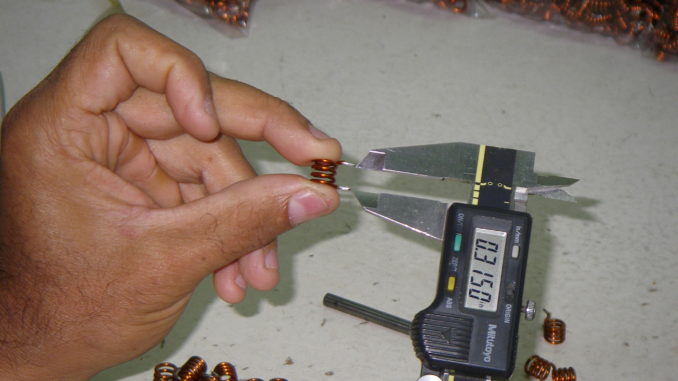
Many people get confused about the difference between manufacturer quality control operation what a third party inspection company performs when an inspector is sent for a quality control operations. Sometimes, people tell us “ I don’t need quality control services because my manufacturer already do quality control by himself”.
Quite often, those are the same people who come back to us asking for a third party quality inspection to be done at their manufacturer place. Most of time they usually learn on the spot why a third party quality inspection agency in China or in Asia can help them to solve quality issues they just didn’t anticipated thinking that their manufacturer would have already properly performed quality control operation before telling their client that their products are ready to ship.
In this article I will explain why having a third party inspection company in China or in Asia can actually be useful to importers who got manufacturers who are already supposedly inspecting goods before declaring them ready to ship.
# The biased effect
If you understand how manufacturing and supply chain operations works, you probably understand that quality control at a manufacturer place is acting as a filter or quality gate for badly manufactured goods. Concretely, this means that products which are not reaching quality standard are stopped at this manufacturing step process and rejected. Sometimes, the goods are just trashed but most of time they are fixed, repaired and reintroduced in the production flow.
Now if you understand that reworking, fixing and repairing a defective good would simply cost money to the manufacturer as it generates wastes, extra production cost and extra overhead. Understanding this, you quickly understand that a manufacturer have low interest in being too strict on filtering. This kind of problem particularly happen when a factory launch a new product and that you are the first customer to order this product. Quite often, the production is not very well stabilized (because the product is new) and the defective rate is higher than once the production is stabilized. If you are buying a product your supplier has never done before, then watch out…
Hence, there is a bias effect between being judge and jury. Obviously the manufacturer can be tempted to be less strict on judging the quality of a product since declaring a product as defective would directly affect its profit margin. So the judgement of what is good and what is not might be biased.
The goal of a third party, as it name imply it is to act neutrally toward manufacturer and toward customer to report only what is a objectively found. A third party quality inspection company, as it doesn’t get any financial interest whatever a product is declared as defective or not, it will make the judgement totally neutral.
# Manufacturer QC is performed by someone who see the same product every day
Imagine, you are a quality control operator on a production line. All day long you see the same product going in front of you. Of course, because of this you are used to know well the product. Sometimes you know it so well that you don’t even see problems. When you are in a routine job, you easily may lose focus on what you do and you have more chances to miss spoting some defectives.
# Sampling vs 100%
One may difference which appear when a third party quality inspection company perform a quality inspection operation is that the third party will most of time perform quality inspection using sampling methodology. Indeed, as product volume orders are usually important, considering that inspecting all products would add up on bill cost of the importers, most of time statistical sampling methodology is used to perform quality inspection.
Normally, the manufacturer should perform a 100% inspection on all products being manufactured in their facilities. Technically, they should have a Final Quality Control (FQC) setup at the end of the production line to filter and reject defectives products. The problem is as mentioned earlier in this article, sometimes defectives still pass through the filter either voluntarily or not. Yet, they are passed…
In some special cases the third party inspection company may also perform a 100% inspection if the importer require it. This kind of practice is usually used for goods with high added value such as luxury goods.
# The third party inspection company as a second filter safeguarding your production quality
As based on the understanding that the third party usually inspect based on sampling, does it means that the third party inspection company doesn’t inspect enough pieces and not as much as the manufacturer ? Does it means that the third party inspection company action is useless ?
Well, not at all because the role of the third party inspection company is rather to act as a second safety filter and to spot at the most affordable way that the first filter didn’t function properly as it should have. As explained previously having a second pair of unbiased eyes can hep to spot what the first filter potentially biased didn’t see.

Leave a Reply